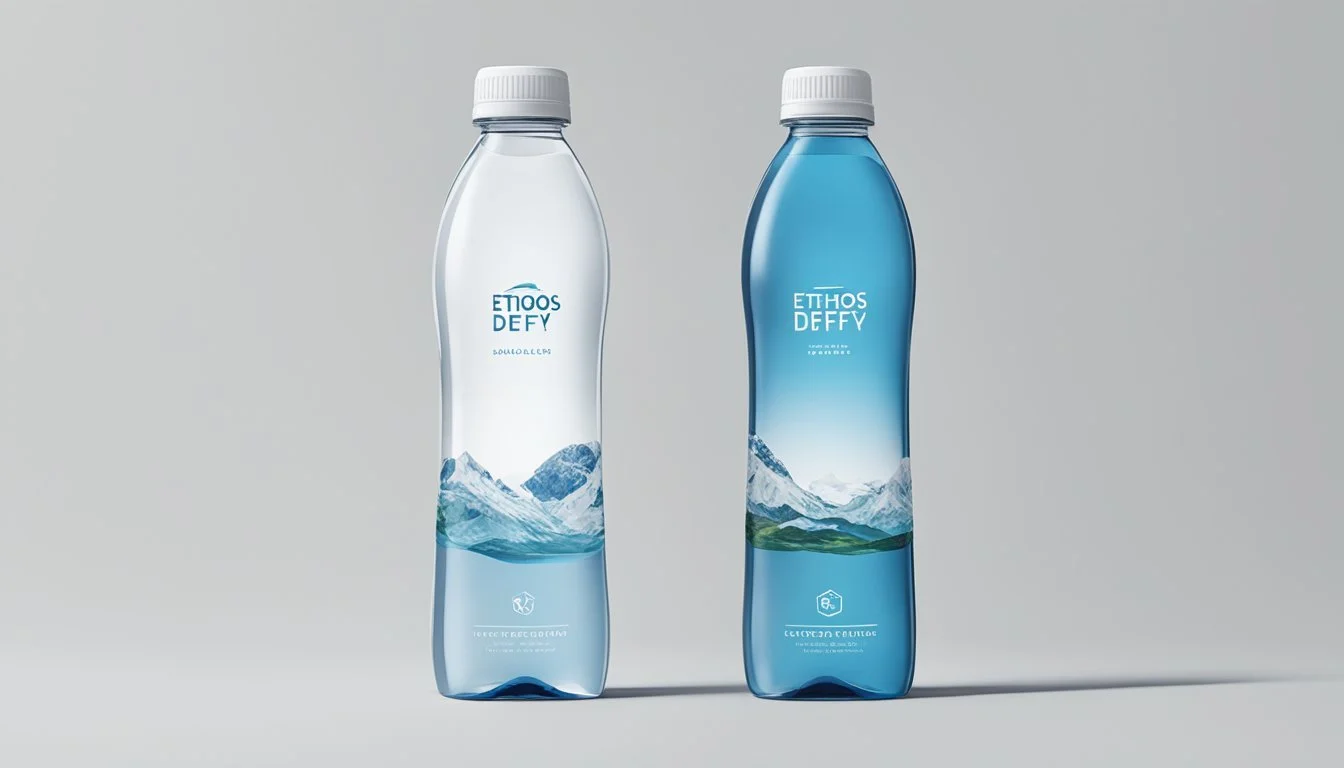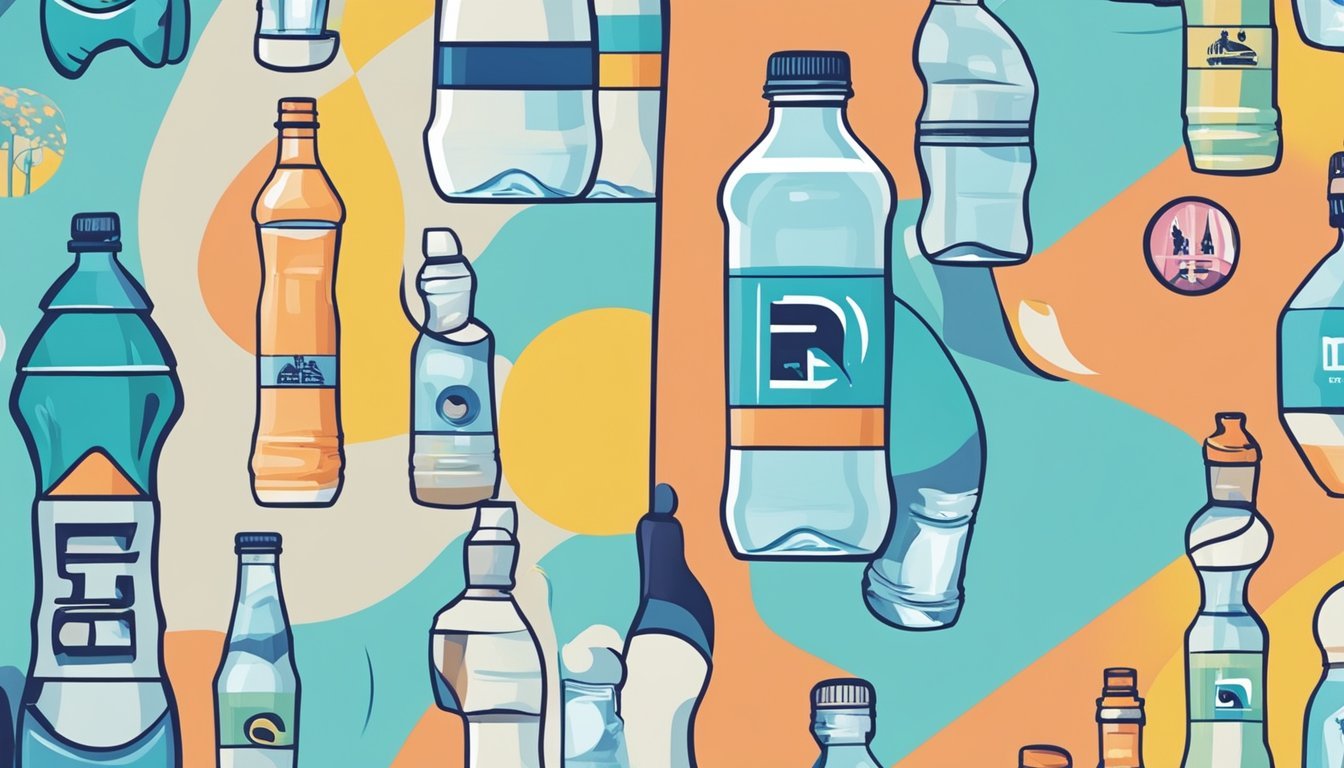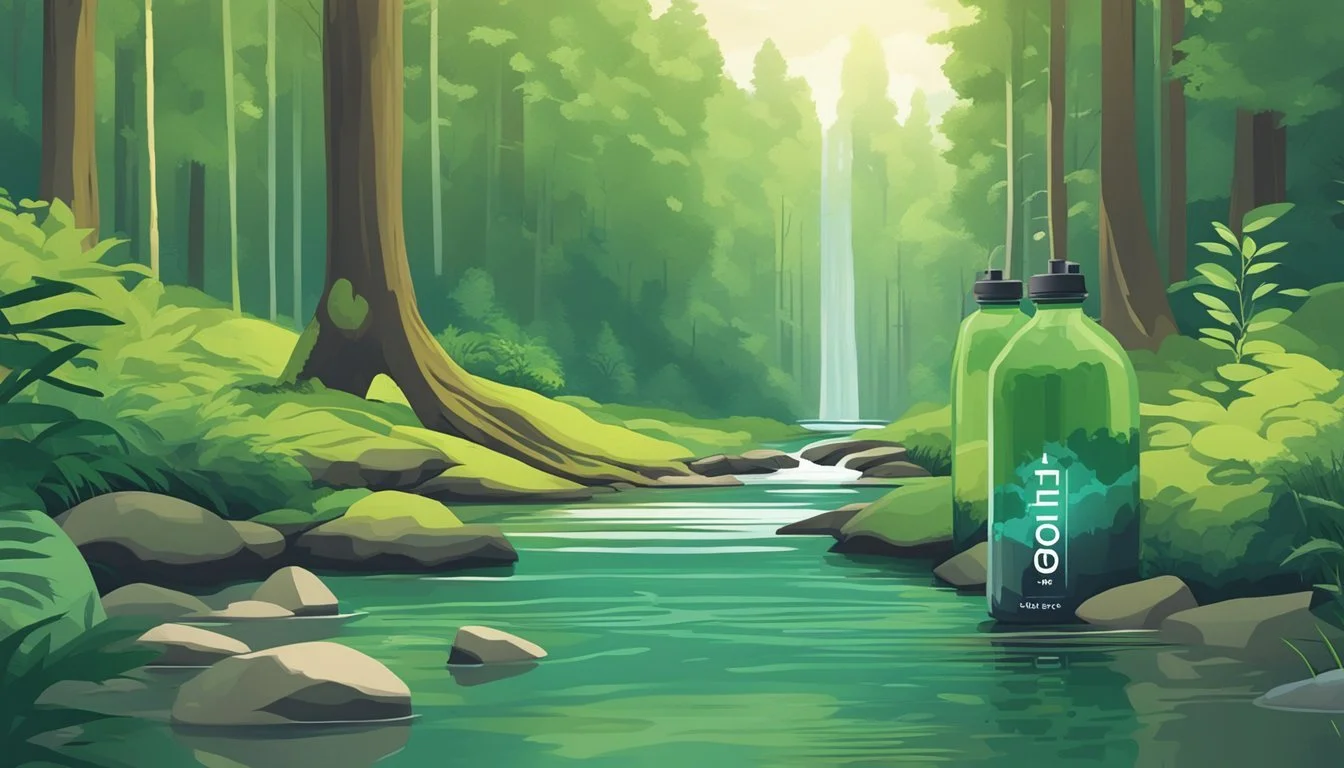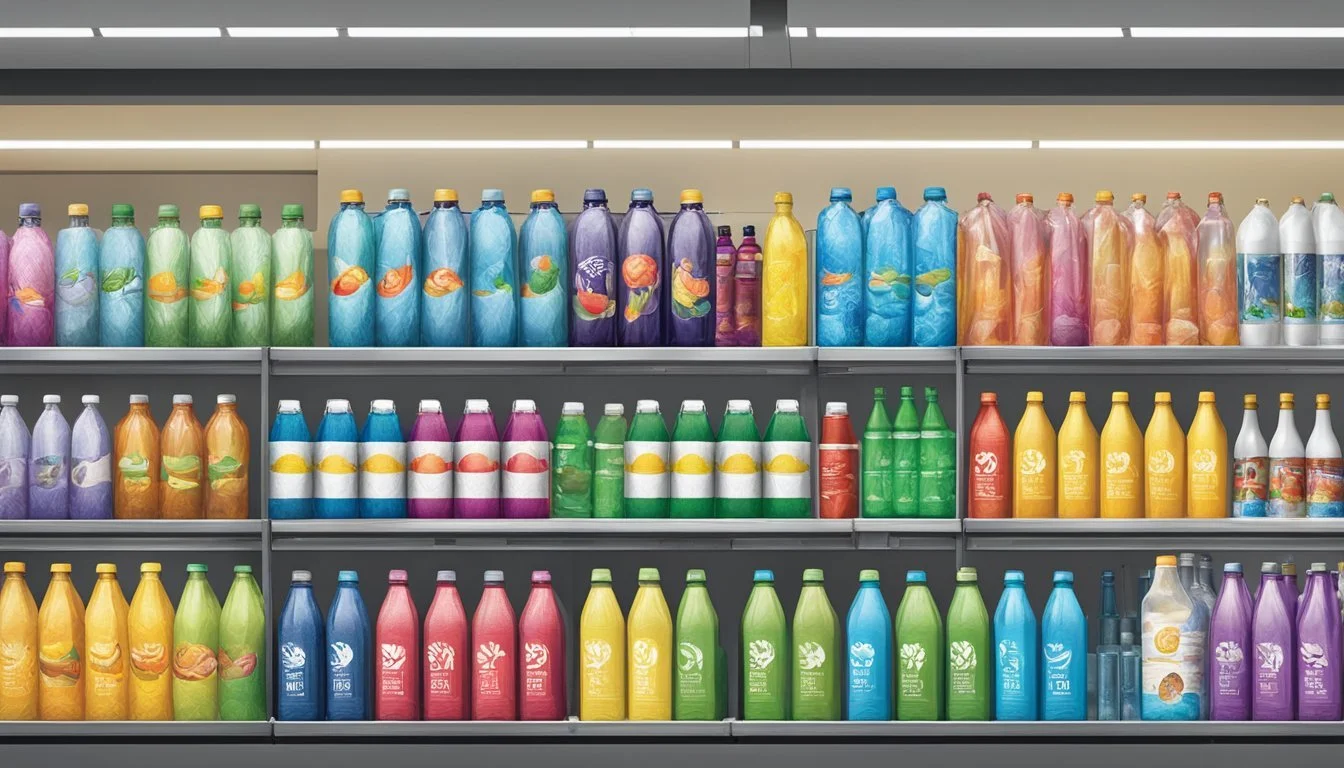Ethos vs. Defy
Comparing the Best Bottled Water Options
When it comes to bottled water, Ethos and Defy are two brands that stand out for different reasons. Ethos prides itself not only on the quality of its water but also on its social impact, contributing a portion of its sales to clean water initiatives around the world. Defy, on the other hand, emphasizes its advanced filtration process and sleek, environmentally friendly packaging.
For those who prioritize social responsibility, Ethos may be the better choice due to its charitable contributions. This brand offers consumers an opportunity to support global water access projects simply by purchasing their product. Its efforts in sustainability extend to the use of recyclable bottles, aligning with a broader industry trend of eco-conscious practices.
Defy appeals to a different segment, focusing on the purity and taste of the water itself. Using an advanced filtration system, Defy promises a crisp and clean drinking experience. Its packaging is not just stylish but also designed to minimize environmental impact, making it a strong contender for those who place a premium on both taste and sustainability.
History and Brand Overview
Ethos Water, a brand under Starbucks, is notable for its charitable focus on clean water access. In contrast, Defy Water is a newer player in the market, aiming to establish itself with unique selling points and aggressive marketing.
Ethos Water: Starbucks' Benevolent Beverage
Ethos Water, launched in 2003, was acquired by Starbucks in 2005. The brand emphasizes philanthropy, especially in water access projects. Ethos bottles are designed to raise awareness of global water crises and contribute a portion of sales to clean water initiatives.
Starbucks uses Ethos to highlight its corporate responsibility. Despite its use of plastic bottles, Ethos aligns with industry trends toward sustainability. Key Points: Ethos’ philanthropic angle, affiliation with Starbucks, and emphasis on environmental and social responsibility.
Defy Water: The New Challenger
Defy Water, launched recently, aims to disrupt the bottled water market with its innovative approach. Known for its sleek packaging and strong online presence, Defy markets itself as a premium brand.
Targeting health-conscious consumers, Defy incorporates unique elements like added electrolytes and a focus on pure, natural sources. Their marketing strategy includes partnerships with influential fitness and lifestyle personalities. Key Points: New entrant, premium positioning, health focus, and innovative marketing techniques.
Source and Purification Process
Ethos and Defy bottled waters showcase distinct approaches to their sources and purification methods, highlighting unique characteristics in terms of natural filtration, mineral content, and pH levels.
Natural Springs and Aquifers
Ethos sources its water from carefully selected natural springs and aquifers. These sources are chosen for their clean, naturally filtered water. Defy, on the other hand, opts for a blend of spring water and purified municipal sources. They focus on sustainability and accessibility.
Both brands ensure that their sources are maintained and protected from contamination. The natural filtration provided by these springs and aquifers contributes to the quality of the water. It's a key aspect that differentiates Ethos’s pure taste and Defy's consistent supply quality.
Filtration and Reverse Osmosis
Ethos employs a multi-step purification process that includes reverse osmosis. This process removes contaminants and impurities, ensuring clean and neutral-tasting water.
Defy utilizes a similar approach but often incorporates advanced filtration techniques to remove even microscopic particles. The reverse osmosis used by both brands efficiently purifies the water. By stripping the water of unwanted elements, they guarantee a high level of purity that distinguishes their products in the market.
Mineralization and pH Levels
Ethos reintroduces a specific blend of minerals after purification to enhance the taste. This carefully curated mineral blend does not significantly alter the water's pH level, keeping it close to neutral.
Defy also enhances its water post-filtration with essential minerals, aiming for a balanced taste profile. Additionally, Defy may focus more on maintaining a stable pH level to ensure consistency in every bottle they produce. These steps ensure that consumers receive a product that not only tastes good but is also beneficial for hydration.
Composition and Health Benefits
Both Ethos and Defy bottled water brands boast unique mineral compositions that can significantly impact health through various benefits such as improved hydration, balanced electrolytes, and essential mineral intake.
Hydration and Electrolyte Balance
Hydration is vital for overall health, and the presence of electrolytes plays a crucial role in this process. Ethos water often includes added electrolytes such as potassium and sodium, which aid in maintaining fluid balance within the body. These electrolytes are essential for muscle function and cellular hydration.
Defy water, while not explicitly focused on added electrolytes, ensures hydration through its purity and natural filtration process. This process retains a balanced level of natural electrolytes, crucial for those seeking a pure hydration experience without additional additives. Both brands aim to enhance hydration efficiency with their unique approaches.
Calcium and Magnesium Content
Calcium and magnesium are minerals essential for bone health and metabolic functions. Ethos water typically contains a moderate amount of calcium and magnesium. These minerals support various bodily functions, including muscle contraction and nerve conduction. Regular intake of calcium and magnesium through water can contribute to daily nutrient requirements.
Defy water is rich in natural minerals, prominently calcium and magnesium. Defy's mineral content supports bone health, muscle function, and metabolic activity. The natural infusion of these minerals provides an accessible source of essential nutrients, making it a beneficial choice for those focused on dietary mineral intake.
Alkalinity and Acidity
The pH level of water can influence how it interacts with the body. Ethos water tends to have a neutral to slightly alkaline pH, balancing acidity in the body. Alkaline water is believed to help neutralize excess acid in the bloodstream, potentially improving overall health and preventing conditions related to high acidity.
Defy water stands out with its alkaline properties, often having a pH level higher than 7. This helps to counteract the modern diet's acidity, which can be beneficial for maintaining a balanced pH in the body. The alkalinity of Defy water makes it a preferred option for those seeking to manage their body's acid-base balance.
Taste Profile and Water Sommelier Insights
Both Ethos and Defy bottled waters offer unique taste experiences influenced by their sources and mineral content. A water sommelier’s analysis highlights key differences in flavor and aftertaste.
Influence of Source on Flavor
Ethos Water, sourced from various locations, is rich in minerals, giving it a crisp taste with a subtle hint of natural sweetness. The water’s origin plays a significant role in its flavor profile, enhancing its appeal to those who enjoy a refreshing and slightly sweet taste.
In contrast, Defy Water, known for its alkaline properties, boasts a smooth, almost velvety texture. Its high pH level lends a distinctive, clean taste that many find appealing. The interplay between its alkaline nature and mineral composition results in a flavor that's both smooth and invigorating.
Aftertaste Comparison
Ethos Water leaves a gentle, lingering aftertaste that highlights its mineral richness without overwhelming the palate. This subtle finish is often appreciated by those who prefer a clean, refreshing experience that doesn’t interfere with the taste of accompanying foods.
Defy Water, on the other hand, offers an aftertaste characterized by its alkaline content. The higher pH contributes to a slightly more noticeable finish, described as smooth and palate-cleansing. This makes it an excellent choice for pairing with meals, as it helps to balance and reset the taste buds between bites.
Packaging and Environmental Considerations
When comparing Ethos and Defy bottled water, it's crucial to examine their packaging choices and environmental impacts. These factors significantly influence consumer decisions, highlighting practical differences between plastic and glass bottles, their environmental footprints, and the brands' commitments to sustainability and social responsibility.
Plastic vs. Glass Bottles
Plastic Bottles: Ethos primarily uses plastic bottles for their products. Plastic is lightweight, reducing transportation costs and emissions. It is recyclable, but recycling rates vary, and plastic waste remains a significant environmental issue.
Glass Bottles: Defy uses glass bottles, which are fully recyclable and often reused. Glass is non-permeable, protecting the water's taste. However, glass bottles are heavier, leading to higher transportation emissions.
Both materials have pros and cons. Plastic offers convenience and lower emissions in transit, while glass provides better recyclability and preserves quality.
Environmental Footprint of Bottled Water
Plastic Bottles and Carbon Footprint: Plastic production and disposal contribute significantly to the carbon footprint. Bottling water in plastic emits CO2, impacting global warming. Ethos acknowledges this issue, providing recycling options, but plastic waste persists.
Glass Bottles and Carbon Footprint: Glass production is energy-intensive, but its longevity and recyclability mitigate long-term impacts. Defy's choice of glass aims to reduce ongoing waste. Glass bottles, while heavier, result in a smaller carbon footprint over multiple cycles of use and recycling.
Comparing the two, plastic affects immediate environmental issues through disposal, while glass offers a more sustainable life cycle despite initial energy use.
Sustainability and Social Responsibility
Ethos’s Initiatives: Ethos is known for its philanthropic efforts. A significant portion of its profits supports clean water projects globally. This aligns with social responsibility goals, addressing water accessibility. Ethos’s bottles include recycling options, promoting environmental sustainability.
Defy’s Approach: Defy also focuses on sustainability by opting for glass bottles, reducing plastic waste. Their business model supports environmental initiatives, contributing to eco-friendly practices. Defy's marketing emphasizes both environmental and social impacts, aiming to attract conscious consumers.
Both brands contribute to sustainability and social projects, though their approaches differ. Ethos channels profits into humanitarian efforts, while Defy prioritizes reducing plastic use. Each strategy offers unique benefits to environmentally and socially conscious consumers.
Consumer Convenience and Accessibility
When it comes to bottled water, consumers prioritize ease of access and affordability. This section explores how Ethos and Defy perform in terms of retail availability, pricing, and suitability for travel and daily use.
Retail Availability and Pricing
Ethos and Defy bottled waters are available in various retail outlets, from major supermarkets to convenience stores. Ethos often collaborates with Starbucks, making it a common sight in their cafes, which adds to its accessibility. On the other hand, Defy can be found in health food stores and selected online retailers.
Pricing also plays a significant role in consumer choice. Ethos, branded as a premium option due to its charitable initiatives, tends to be priced higher. Defy, while maintaining a premium image, offers competitive pricing to attract a broader audience. Both brands emphasize sustainability in their packaging, aligning with growing consumer preferences for eco-friendly products. Compared to other brands like Pure Life and Poland Spring, Ethos and Defy provide a niche product with specific market positioning.
Convenience for Travel and Daily Use
Ethos bottled water is packaged in various sizes, accommodating different consumer needs, from compact bottles for daily use to larger ones for events or office settings. The brand's eco-conscious packaging appeals to travelers keen on reducing their environmental impact.
Defy offers similarly convenient packaging sizes but places a stronger emphasis on durability and robustness. This makes it a preferred choice for outdoor activities and travel, where durability is critical. Both brands ensure ease of use with easy-to-open caps and ergonomic designs.
Comparatively, brands like Pure Life and Poland Spring also provide versatile packaging options. Nonetheless, Ethos and Defy cater specifically to consumers seeking premium, socially responsible choices without compromising on convenience.
Regulatory Standards and Quality Assurance
Ethos and Defy both adhere to stringent regulatory standards to ensure the quality and safety of their bottled water. Key components of these standards include compliance with FDA regulations and rigorous testing for contaminants and purity.
FDA Regulations and Compliance
Both Ethos and Defy must comply with FDA regulations, which set standards for bottled water quality and safety. The FDA has established bottled water Standards of Quality for over 90 substances, ensuring that the water meets specific requirements for contaminants like lead, nitrates, and microbial pathogens.
These standards are designed to align closely with the EPA's maximum contaminant levels for tap water systems. Regular inspections and adherence to these regulations are crucial for maintaining consumer trust and protecting public health.
Testing for Contaminants and Purity
Ethos and Defy employ rigorous testing methods to ensure their water is free from harmful contaminants. Techniques such as reverse osmosis and carbon filtration are commonly used to achieve high purity levels.
Regular testing for bacteria, heavy metals, and chemical contaminants helps maintain high standards of sanitation and hygiene. Transparency in providing test results to consumers fosters confidence and educates the public on water quality issues.
Ethos focuses on ensuring safety and engaging in charitable initiatives for clean water. Defy emphasizes technological advancements in purification to guarantee the highest water quality. Both brands strive to meet or exceed the regulatory standards set by the FDA and EPA.
Market Presence and Brand Perception
Ethos and Defy bottled waters hold distinct positions in the competitive bottled water market. Both brands have garnered attention for their unique attributes, ranging from sustainable practices to public perception and brand loyalty.
Consumer Trust and Loyalty
Ethos, known for its mission to support clean water initiatives for children, has built a strong sense of trust and loyalty among consumers. Many feel that purchasing Ethos contributes to a larger cause, enhancing its appeal.
Defy, marketed as premium alkaline water, similarly enjoys a dedicated customer base. Its branding often emphasizes health benefits and superior hydration, resonating with fitness enthusiasts and those seeking a healthier lifestyle.
Both brands have successfully carved out niches. Ethos appeals to socially conscious consumers, while Defy targets health-focused individuals. This targeted appeal helps both maintain a loyal customer base, ensuring consistent market presence.
Media Representation and Reviews
Ethos has received positive media coverage for its charitable contributions and sustainable practices. Mainstream channels and platforms like YouTube highlight its social impact, increasing its product visibility.
In contrast, Defy often features in health and wellness reviews. The brand gains traction through endorsements from athletes and celebrities, strengthening its market position.
Reviews for Ethos frequently mention the altruistic aspect of the brand, whereas Defy’s reviews focus on its health benefits and superior taste. Both have strong online presences, leveraging social media and influencer marketing to boost their public image. Each brand's media strategy effectively enhances consumer perception and market presence.
Conclusion
Ethos and Defy offer distinct choices in bottled water.
Ethos Water, a subsidiary of Starbucks, is recognized for its philanthropic efforts. Each purchase contributes to clean drinking water projects globally. However, the plastic bottles used by Ethos have raised environmental concerns over their carbon footprint.
Defy Water markets itself as a premium lifestyle choice. Its offerings include sleek packaging and claims of superior taste. Consumers often choose Defy for its appealing branding and emphasis on health-conscious hydration.
Key Considerations
Philanthropy: Ethos makes contributions to clean water initiatives.
Packaging: Defy offers a more upscale presentation.
Environmental Impact: Ethos primarily uses plastic, raising sustainability concerns.
Taste and quality are subjective; individual preferences will vary. When deciding between these brands, consider what aligns with personal values and lifestyle.
More About Ethos
Ethos vs Mountain Valley Spring Water: Which Bottled Water is Better?
Ethos vs Richard's Rainwater: Which Bottled Water is Better?
Ethos vs Whole Foods Italian Still Mineral water: Which Bottled Water is Better?









